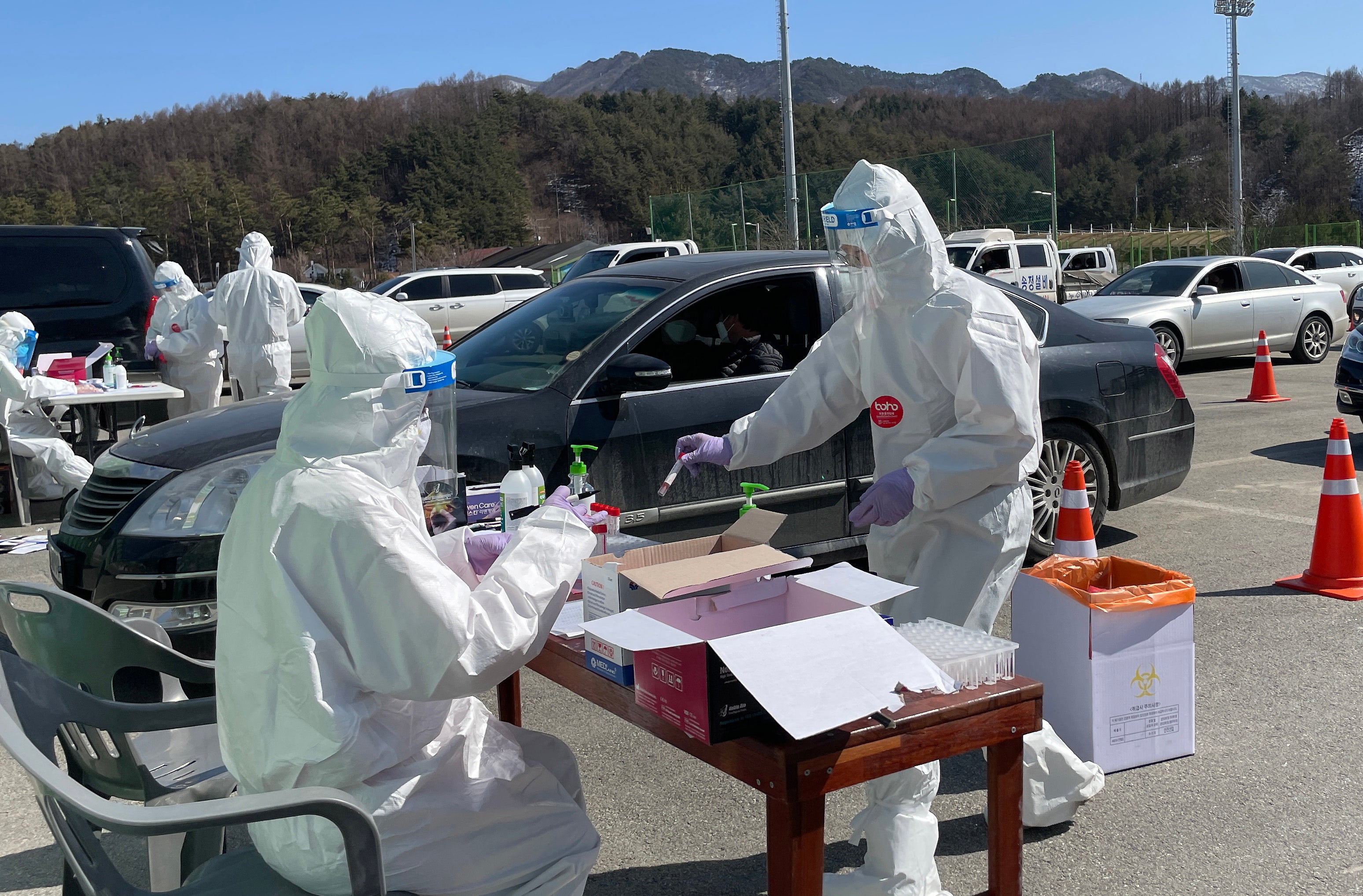South Korean province orders ‘foreigners’ get tested for Covid, prompting allegations of xenophobia
Immigrant workers in Gyeonggi told they face fines of almost £2,000 if they failed to get themselves tested before 22 March

Your support helps us to tell the story
From reproductive rights to climate change to Big Tech, The Independent is on the ground when the story is developing. Whether it's investigating the financials of Elon Musk's pro-Trump PAC or producing our latest documentary, 'The A Word', which shines a light on the American women fighting for reproductive rights, we know how important it is to parse out the facts from the messaging.
At such a critical moment in US history, we need reporters on the ground. Your donation allows us to keep sending journalists to speak to both sides of the story.
The Independent is trusted by Americans across the entire political spectrum. And unlike many other quality news outlets, we choose not to lock Americans out of our reporting and analysis with paywalls. We believe quality journalism should be available to everyone, paid for by those who can afford it.
Your support makes all the difference.South Korea’s most populous province has declared that all foreign workers must undertake Covid-19 tests within the next week or face large fines, in a move that is prompting allegations of xenophobia.
Gyeonggi province, which surrounds the capital Seoul and is home to thousands of immigrant workers, said in an administrative order that anyone failing to comply faced a fine of up to 3 million won (£1,900).
It came after at least 275 foreigners tested positive for Covid in the province, with a number of outbreaks reported at manufacturing plants.
The order is expected to impact roughly 85,000 registered foreigners and potentially many more undocumented workers, provoking a chaotic rush from people trying to get their tests done.
People complained of long queues, mismanagement at testing centres, the flouting of social distancing norms and logistical problems as several accused the government of “racism”.
Read more:
The queues stretched for about 100 metres from a Covid testing centre in the city of Ansan on Monday as thousands of people lined up.
“I agree that everyone should get tested for Covid, but it is so exhausting to wait for hours,” Jin Dianshun, a 65-year-old restaurant worker from China who said she had been standing in line for four hours, told Reuters.
Jin said she also queued up on Saturday for hours but was eventually turned away, adding: “I am sure Koreans would have protested if this was done the same way for them.”
A health worker at the temporary Covid testing centre said he is not allowed to speak to the media but that they are conducting an average of 1,400 tests a day following the order.
Some 120,310 foreigners had been tested till Sunday, with 120 people testing positive, a provincial official told Reuters.
While many people called it an invasion of human rights and accused the authorities of using foreigners as scapegoats for rising Covid cases, some were in the favour of testing.
Derval Mambou, a car parts maker from Cameroon, said he welcomed the testing regime.
“They want people living here in Korea to be safe from the coronavirus, even foreigners,” he said as he stood in line.
A British national who owns a business in the country and has been living there for years said the order feels “xenophobic and racist”.
“I have lived in Korea for years, pay a mortgage, run a business, have a family, pay tax,” said John, a graphic designer who requested to be identified by only his first name.
“Yet they are treating us like we are the problem because of coronavirus.”
An official denied accusations of discrimination and said the rate of infections among foreign workers was a high-risk situation.
“We don't think this is to discriminate or stigmatise foreign workers, and it shouldn't be accepted that way,” Jeong Eun-kyeong, Korea Disease Control and Prevention Agency (KDCA) director said.
Last month, a cluster of 124 infections was traced to a factory in Namyangju, northeast of Seoul where migrant workers were settled in a small dormitory. More such outbreaks have been reported in Icheon and Pyeongtaek province, where workers stay in cramped and poorly ventilated housing blocks.
According to the Gyeonggi official, foreign workers amounted to 14 per cent of the total 25,000 confirmed cases in the province since last year.
Additional reporting by agencies
Join our commenting forum
Join thought-provoking conversations, follow other Independent readers and see their replies
Comments